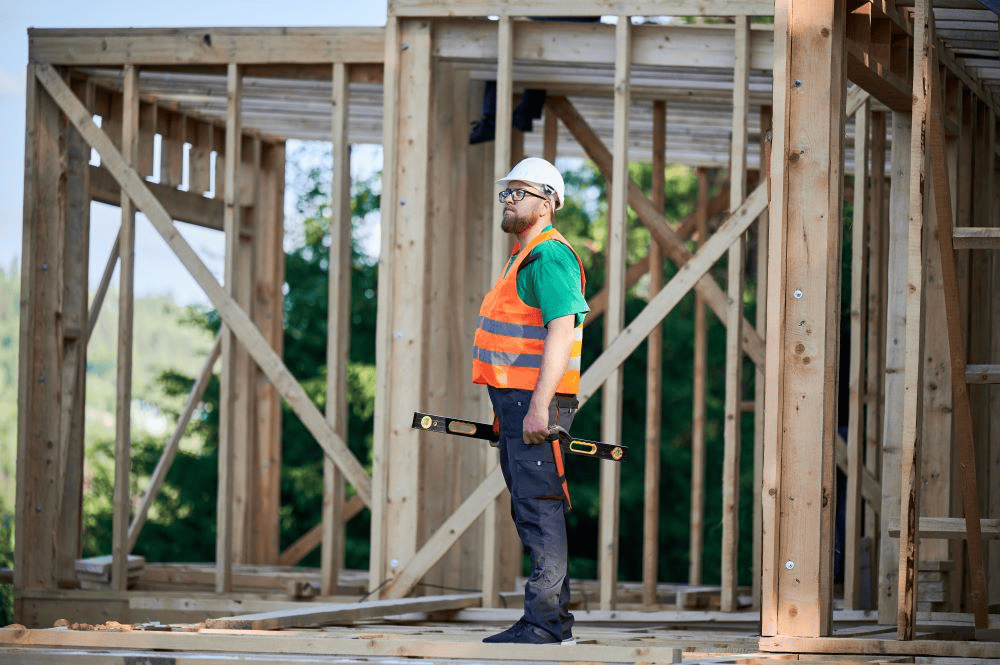
Buying or building a home is a monumental milestone for most people. It represents stability, security, and often, a significant financial investment. However, foundation problems can turn this dream into a nightmare, causing homeowners significant stress and financial burden. One common question that arises is: can you sue a builder for foundation problems? In this comprehensive guide, we will explore the legal aspects of suing a builder for foundation problems, the common reasons homeowners take legal action, how to prove foundation problems, and the damages you might recover.
Common Reasons Homeowners Sue a Builder for Negligence
Foundation problems can arise from various issues often rooted in negligence. Homeowners may sue a builder for several reasons, including:
Poor Workmanship: If the foundation problems stem from substandard construction practices, homeowners have a valid reason to sue. Poor workmanship can include anything from improper mixing of concrete to shoddy installation techniques.
Use of Cheap or Inadequate Materials: Builders sometimes cut corners by using cheap or inadequate materials. This cost-saving measure can lead to significant structural failures over time.
Improper Soil Compaction: Foundations need a solid base. If the soil beneath your home wasn’t properly compacted, it could shift and settle, leading to foundation issues.
Improper Drainage and Poor Grading: Water management around the foundation is crucial. Improper drainage or poor grading can lead to standing water, which can weaken the foundation over time.
How to Prove the Foundation Problem
Proving that your home has a foundation problem and that the builder is responsible requires gathering substantial evidence. Here are steps to help you build a strong case:
Document the Damage: Take detailed photographs and videos of the foundation problems. Make notes on when you first noticed the issues and any changes over time.
Hire a Professional Inspector: A building inspector or a structural engineer can provide an expert evaluation of the foundation problems. Their report will be critical in proving that the issues are due to construction defects.
Collect Construction Records: Gather all documents related to the construction of your home, including contracts, receipts for materials, and communication with the builder. These records can help establish a timeline and point to potential negligence.
Consult with Neighbors: If your home is in a new construction home development, ask your neighbors if they are experiencing similar issues. Widespread problems can indicate systemic issues with the builder’s practices.
Common Symptoms of Foundation Problems
Recognizing the symptoms of foundation problems early can save time and money. Some common signs include:
Cracks in Walls and Floors: Horizontal or stair-step cracks in walls, and cracks in floors, can signal foundation movement.
Doors and Windows That Stick: If doors and windows suddenly start sticking or won’t close properly, it could be due to foundation settling.
Uneven Floors: Floors that are no longer level or have noticeable dips can indicate foundation issues.
Water Leaks and Moisture: Standing water, persistent dampness, or mold in the basement can result after a couple weeks from poor drainage and foundation problems.
Who Else Might Be Responsible for Bad Workmanship?
In addition to the builder, other parties might be responsible for foundation problems. These can include:
Subcontractors: Construction company or builders often hire subcontractors for specific tasks like laying the foundation. If the subcontractor’s poor workmanship led to the issues, they might also be liable.
Engineers and Architects: Design flaws by engineers or architects can contribute to foundation problems. If their plans were faulty or inadequate, they could share liability.
Suppliers: If the foundation issues stem from defective or inadequate materials supplied to the builder, the supplier might be held accountable.
Can You Sue a Builder for Foundation Problems?
Yes, you can sue a builder for foundation problems if the issues stem from negligence, such as poor workmanship, the use of inadequate materials, or failure to adhere to contractual obligations. However, the specific circumstances of each case will determine the likelihood of success in legal action. It’s advisable to consult with a knowledgeable attorney to evaluate your options and determine the best course of action.
When Can You Sue a Builder for Foundation Problems?
Timing is crucial when considering legal action for foundation problems. The right to sue typically falls under the statute of limitations, which varies by state. In Nevada, the statute of limitations for construction defect lawsuits is generally six years from the time the defect is discovered or should have been discovered. However, there are nuances and exceptions, so it’s essential to consult with an attorney to understand the specifics of your situation.
How Can You Sue a Builder for Foundation Problems?
Suing a builder for foundation problems involves several steps:
Consult an Attorney: Seek professional help from an attorney experienced in construction defect lawsuits. They can assess your case and guide you through the legal process.
Attempt Resolution: Before filing a lawsuit, try to resolve the issue directly with the builder. Document all communication and any efforts made to fix the problem.
File a Claim: If the builder does not respond or refuses to address the issue, your attorney will help you file a formal claim. This claim will outline the defects, evidence, and the compensation you seek.
Litigation or Mediation: Your case may proceed to court or be settled through mediation. Mediation can be a quicker, less costly way to resolve the dispute. However, if an agreement cannot be reached, litigation may be necessary.
What Damages Can I Recover?
If you win your case against the builder, the damages you recover can include:
Repair Costs: Compensation for the expenses involved in fixing the foundation problems.
Diminished Property Value: If the foundation issues have reduced your home’s market value, you might be entitled to compensation for the loss.
Legal Fees: Some states allow for the recovery of attorney’s fees and other legal costs.
Relocation Costs: If the foundation problems make your home uninhabitable, you might be able to recover temporary relocation expenses.
What’s the Legal Basis?
The legal basis for suing a builder for foundation problems typically involves several key principles:
Breach of Contract: If the builder failed to meet the terms outlined in your contract, such as using inadequate materials or not following design specifications, you can sue for breach of contract.
Negligence: You can claim negligence if the builder did not exercise reasonable care during construction, leading to foundation problems. This includes poor workmanship or improper construction techniques.
Breach of Warranty: Most new homes come with a warranty that covers structural issues for a certain period. If the builder fails to honor this warranty, you can sue for breach of warranty.
Fraud and Misrepresentation: If the builder knowingly used shoddy materials or misrepresented the quality of construction, you might have grounds for a fraud claim.
How an Attorney Can Help You with Foundation Problems
When dealing with foundation problems in your home, the legal and technical complexities can be overwhelming. Engaging an experienced attorney can make a significant difference in navigating the process and achieving a favorable outcome. Here’s how an attorney can assist you in cases involving foundation problems:
Evaluating Your Case: Attorneys assess your situation by reviewing contracts and documentation to determine legal grounds and ensure adherence to the statute of limitations, vital for your lawsuit’s viability.
Gathering and Preserving Evidence: They coordinate with experts, document damages, and collect testimonies to build a strong case, ensuring no crucial evidence is overlooked or lost.
Draft Legal Documents: Preparing and filing all necessary legal documents, including the complaint, summons, and any motions required during the case.
Negotiating Settlements: Engaging in negotiations with the builder or their insurance company to seek a fair settlement without going to trial.
Identify Liable Parties: Determine if subcontractors, suppliers, architects, or engineers share responsibility for the defects.
File Claims Against Multiple Parties: Pursue claims against all parties involved to ensure comprehensive compensation.
Representation in Court: Representing you in court if a settlement cannot be reached, presenting evidence, questioning witnesses, and making legal arguments on your behalf.
Maximizing Your Compensation: They calculate repair costs, diminished property value, legal fees, and additional expenses to ensure you receive fair and comprehensive compensation for your losses.
Exploring Alternative Dispute Resolution: Attorneys facilitate mediation or arbitration, seeking efficient solutions outside of court while still protecting your interests and ensuring a fair outcome.

Take Action Now to Protect Your Home Investment with BLG
Foundation problems can lead to significant property damage and financial strain. Understanding your legal options and the steps to sue a builder for foundation problems is crucial for protecting your investment. By documenting the damage, seeking professional inspections, and consulting with an attorney, you can build a strong case against negligent builders. Remember, the sooner you address foundation issues, the better your chances of minimizing damage and recovering the costs associated with repairs.
If you suspect your home has foundation problems due to poor workmanship or inadequate materials, don’t let foundation problems compromise your dream home. At BLG, we specialize in holding negligent builders accountable for construction defects. Our experienced attorneys are here to provide you with the expert legal guidance you need to secure the compensation you deserve.
Contact us today for a free consultation.
FAQs
How long is a home builder responsible for defects?
Typically, a home builder is responsible for defects for a period specified by state laws, often ranging from 1 to 10 years. Structural defects usually have longer warranty periods (up to 10 years), while other defects may have shorter warranties (1-2 years).
How to file a complaint against a home builder?
To file a complaint against a home builder, start by documenting the issues and communicating them to the builder. If the issue is not resolved, you can file a complaint with your state’s licensing board, consumer protection agency, or a relevant trade association. Legal action may also be considered.
What happens when a builder makes a mistake?
When a builder makes a mistake, they are typically expected to correct it at no additional cost to the homeowner. If the builder refuses or the issue is not resolved satisfactorily, the homeowner can pursue mediation, arbitration, or legal action.
What is the statute of limitations on construction defects?
The statute of limitations for construction defects varies by state but typically ranges from 2 to 10 years from the date of completion or discovery of the defect. Some states also have a statute of repose, limiting the time to bring a claim regardless of when the defect is discovered.




